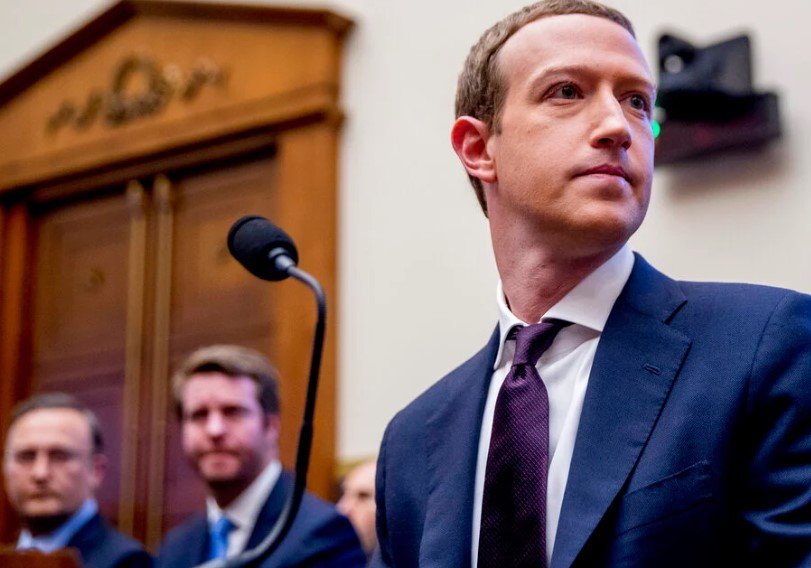Meta’s dominance in the social media space is being questioned as CEO Mark Zuckerberg takes the stand in a crucial FTC antitrust trial. The company’s key acquisitions of Instagram and WhatsApp are under scrutiny, with accusations of stifling competition. Will these high-profile mergers lead to Meta being forced to ‘unfriend’ Instagram? Here’s what’s at stake.
The social media giant Meta is facing an intense legal battle that could reshape the future of its acquisitions. In a highly anticipated antitrust trial led by the U.S. Federal Trade Commission (FTC), Mark Zuckerberg, the company’s CEO and co-founder of Facebook, is defending the firm’s actions against claims that it used its financial might to eliminate competition. This trial, which could have massive implications for how large tech companies make acquisitions, is centered around Meta’s controversial buyouts of Instagram and WhatsApp—two platforms that are now integral to its empire.
FTC Accuses Meta of Eliminating Competition
The core issue at hand is whether Instagram and WhatsApp were real competitors when Meta swooped in to buy them. The FTC’s lawsuit argues that Zuckerberg’s company strategically neutralized potential threats before they could grow into serious competition. According to the commission’s lawyer, Daniel Matheson, Meta’s strategy wasn’t to foster innovation but to eliminate emerging competition by purchasing these platforms.
Matheson’s statements set the tone for the trial, claiming Meta’s approach to competition was anything but fair play. “They decided competition was too hard,” Matheson said, during the opening remarks. The implication is clear: Meta allegedly used its substantial resources to secure acquisitions that kept potential rivals at bay, possibly undermining fair competition in the social media market.

Meta’s Defense: Growth, Not Suppression
In contrast, Meta’s legal team has adamantly defended the acquisitions as a natural part of growth strategy. Mark Hansen, representing Meta, argued that U.S. law permits companies to buy other businesses as part of their expansion plans. According to Hansen, the company’s goal wasn’t to stifle competition, but to bolster growth, enhance its services, and diversify its offerings.
Meta’s stance raises an important question: Is it unlawful for a company to acquire smaller players that have the potential to compete in the same market? The legal battle centers around this, especially when it involves some of the most popular platforms in the world.
Acquisitions Under the Microscope
The Instagram and WhatsApp purchases are far from ordinary. Both acquisitions were made when these platforms were quickly becoming significant players in the social media and communication landscape. Instagram, with its photo-sharing and social networking features, and WhatsApp, with its encrypted messaging service, posed a direct challenge to Meta’s dominance. By acquiring them, Meta didn’t just secure market share; it neutralized the growing threats they represented.
The question remains: were these platforms really on the verge of competing with Meta at the time of the acquisitions? Or did Zuckerberg act preemptively to prevent any competition from emerging?
The Fallout from the Trial
While the FTC argues that Meta’s actions harmed competition, the trial could also highlight broader concerns about the influence of big tech companies. The outcomes of this case may set new precedents for how regulatory bodies handle acquisitions in the tech industry. For now, the trial is heating up, and it’s unclear how the courts will rule. What is certain, however, is that the stakes are high for Meta, Instagram, WhatsApp, and the broader tech ecosystem.
Public Opinion and Market Reactions
Public sentiment around this trial is mixed. On one hand, there are those who believe Meta’s consolidation of power has hurt innovation in the industry, leaving users with fewer choices. On the other hand, Meta’s supporters argue that the company’s massive growth has led to more refined products and services, benefiting users worldwide. Meta’s public image could be on the line, depending on how the case unfolds.
Meanwhile, market analysts are closely monitoring how the trial could affect Meta’s stock price and future acquisitions. If the courts rule against Meta, the company may face restrictions on future mergers and acquisitions, potentially altering its business strategy. However, if Meta is cleared, it could embolden other tech giants to pursue similar acquisition strategies.
Could Meta Be Forced to ‘Unfriend’ Instagram?
The central question remains whether Meta will be forced to separate from Instagram or WhatsApp. Some legal experts have speculated that the court could order Meta to divest these acquisitions if it’s found that they violate antitrust laws. This would be a dramatic move, especially considering the massive role these platforms play in Meta’s ecosystem.
However, such an outcome is far from certain. Legal experts point out that breaking up Meta might be a steep hill to climb, given the complex nature of its business. But even the possibility of such a drastic measure underscores the seriousness of the trial and its potential to disrupt the tech industry.
